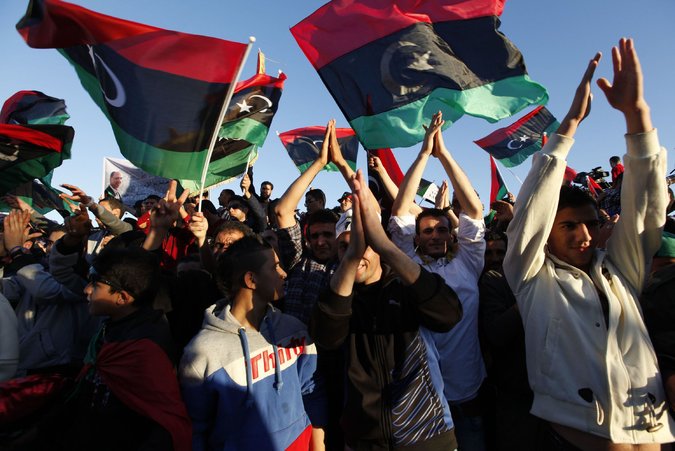
Dr. Ghelawdewos Araia, our seasoned political Scientist, has it right, when he writes,
On top of his contributions to destabilizing some African nations, Gaddafi has also established a dynastic government for himself and for his seven sons and one daughter who virtually run the state and own the national wealth of Libya. Simply put, the personal rule of Gaddafi literally turned Libya into a private dominion of the Gaddafi family. It is due to this unconscionable reality that the Libyan people rose up against the political order, and however ill organized and sporadic their movement is they have at least managed to establish a government at Benghazi.
Now, the international community has a moral obligation to support the Libyan opposition. France, to its credit, has recognized the newly formed government in eastern Libya. Other Great Powers including the US are hesitant to intervene but it could only be a matter of time to end their cautionary stance, and they may follow France’s footsteps soon. (Institute of African Development, 2011)
Dr. Ghelwadewos Araia stated it best. An intervention on the side of the people’s democracy is not only the right political move, but also a moral imperative. In Kantian language it is the correct moral stance, uncontaminated by political imperatives. As Dr. Ghelwdewos insisted in previous articles, the USA in particular should seize this opportune moment and develop new allies in the Arab world and beyond with new democracies, people’s democracies, produced by the peaceful but sustained energies and passions propelled by uprisings, spectacularly new models of resisting tyrannies.
As the world community knows the prevailing Tyrannical/ Oligarchic regimes has endeared to American policy makers that it has a tantalizing military apparatus, which can contain the terrorism of Al Qaeda and other forms of Islamic fundamentalism. This lie has enabled this regime to stay in power.
No condition is however, permanent. When the people’s uprisings springs in Ethiopia, American foreign policy makers will think anew, as they are prepared to do in Libya, they will side with the people’s new democracies and against Tyranny. Although the Tyrannical Ethiopian regime is convinced that the USA will not betray it, events in Tunisia, Egypt and now Libya prove otherwise. The new languge of democracy has changed. The old language was truncated democracy and the new language is the people’s democracy, and as Dr. Ghelawdewos advises,
The United States, as one of the founding members of the UN, is no stranger to the concept and practice of collective security. Therefore, the popular uprisings in North Africa should not be viewed as a challenge to the United States; on the contrary, they should be perceived as a golden opportunity for America in finding new democratic friends in Africa and elsewhere. If the United States is serious in reformulating its foreign policy spectrum in such away to accommodate democratic regimes and no longer appease dictators, it should uphold what political scientists call ‘global level of analysis,’ in which state and non-state global actors find common ground and work together.
The US, in fact should send a clear signal to democratic forces around the world, including to those in Uganda, Ethiopia, Ivory Coast, Sudan, the Arab countries, that it will support them in their struggles for democratic transformation. (Institute of African Development, 2011)





